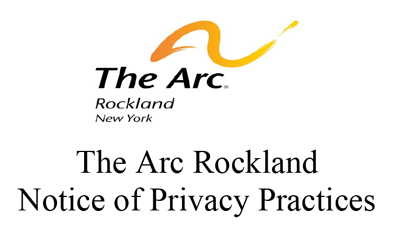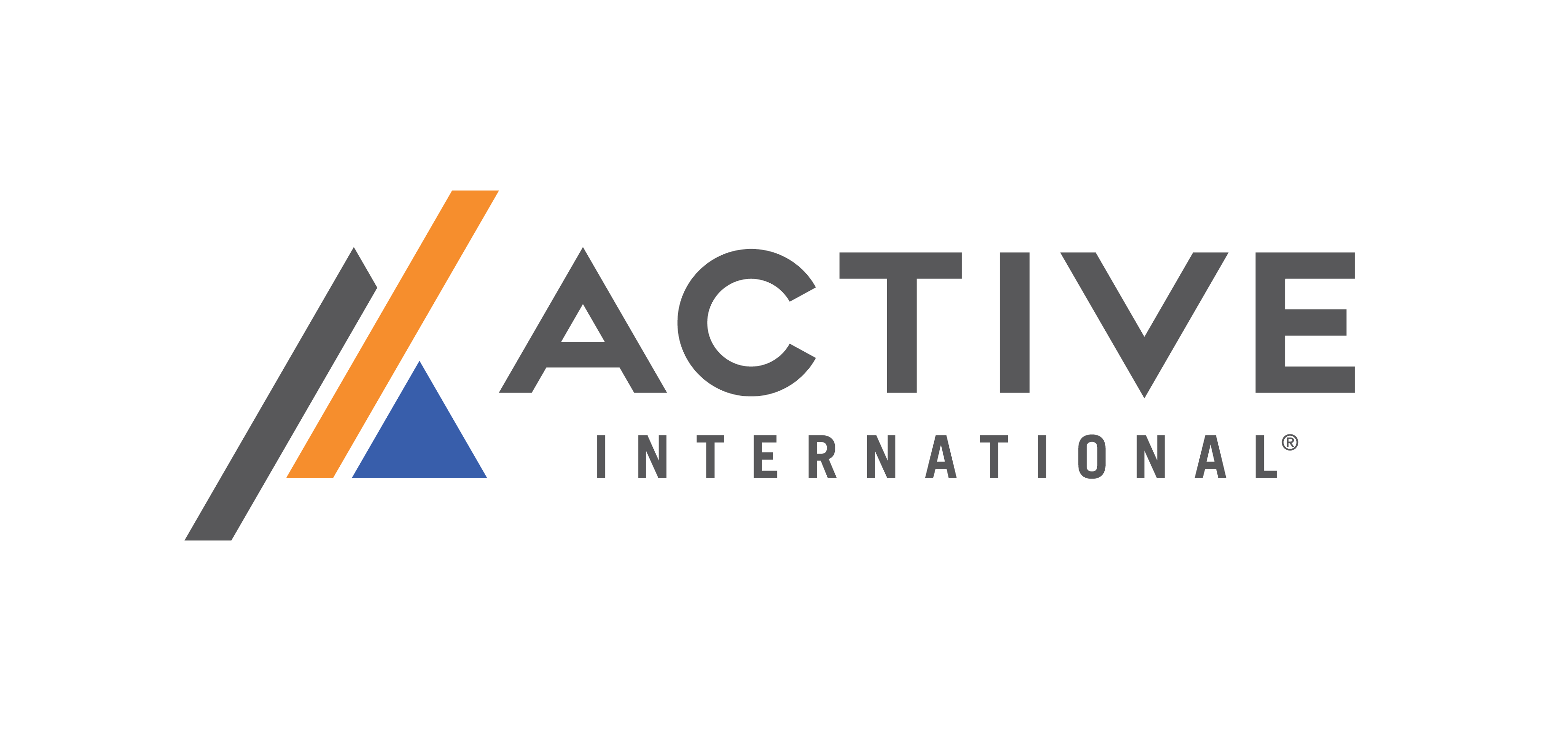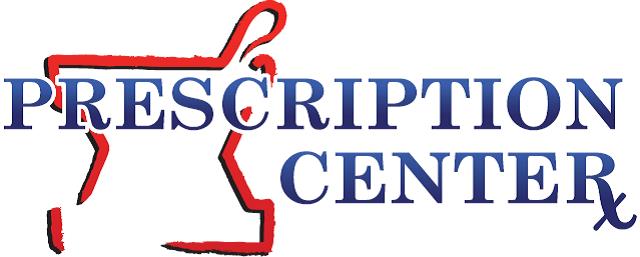HIPAA Privacy Statement

Notice of Privacy Practices - updated 2/2019
OUR PRIVACY COMMITMENT TO YOU:
At The Arc Rockland we understand that information about you (including information about the care and services you receive) is personal and confidential. We are committed to protecting your privacy and sharing information only with those who need to know, are allowed to see the information in order to assure that quality services are provided.
This notice describes how medical/clinical information about you may be used and disclosed and how you, your guardian (if any) and/or your personal representative(s) can get access to this information. Guardians and personal representatives should be aware that the word “you” in this notice refers to the individual not the guardian.
We are required by both federal and state law to protect the privacy and confidentiality of mental hygiene information that may reveal your identity and to notify any affected Individuals following a breach of unsecured Protected Health Information.
We are required to provide you with a copy of this notice which describes the medical information privacy practices of our agency, its staff, and affiliated service providers that jointly provide services for you. A copy of our current notice will always be available in each of our residences and program sites. You will also be able to obtain a copy by accessing our website at www.rocklandarc.org, calling our office at (845) 267-2500 x3138 or asking for one at the time of your next visit.
If you have any questions about this notice or would like further information, please contact the Privacy Officer at (845)267-2500 x3138.
CONFIDENTIALITY OF CLINICAL/MEDICAL INFORMATION
Medical/clinical information about you may be used by our agency (or its business associates) in connection with our duties to provide you with treatment, to obtain payment for that treatment, or to conduct our agency’s business operations.
- We will request your general consent to use your information for treatment, payment and health care operations purposes, as more thoroughly set forth below. Except as described in this Notice, uses and disclosures will be made with your written authorization, including any use or disclosure, with certain exceptions, of psychotherapy notes, for marketing purposes or involving the sale of your protected health information. The following are examples of the types of uses and/or disclosures of your protected health information that may occur. These examples are not meant to include all possible types of uses and/or disclosures.
- When we are communicating with other agencies which are currently providing services to you, or working with us to plan for services for you, if this communication is about treatment, payment, or agency operations.
- "treatment" means that we may share medical/clinical information about you inside our agency, or with another agency or practitioner, to plan for and provide services for you. If you agree, we may also share information about you with others outside the service system when necessary to provide other services; for example, we may disclose certain information about you to a prospective employer in connection with a job placement or training program or share information with medical providers.
- "payment" means that we may use medical/clinical information about you, or share it with others, so that we obtain payment for services provided to you.
- "operations" means that we may use medical/clinical information about you, or share it with others, in order to conduct our normal business operations. For example, we may use medical/clinical information about you to evaluate the performance of our staff in providing services to you, or to educate our staff on how to improve the care they provide for you.
- To a personal representative who is authorized to make health care decisions on your behalf;
- To government agencies or private insurance companies in order to obtain payment for services we provided to you;
- To comply with a court order;
- To appropriate persons who are able to avert a serious and imminent threat to the health or safety of you or another person;
- To appropriate government authorities to locate a missing person or conduct a criminal investigation as permitted under Federal and State confidentiality laws;
- To other licensed agency emergency services as permitted under Federal and State confidentiality laws;
- To an attorney representing you in an involuntary hospitalization or medication proceeding. (We will not disclose medical/clinical information about you to an attorney for any other reason without your authorization, unless we are ordered to do so by a court.)
- To authorized government officials for the purpose of monitoring or evaluating the quality of care provided by the agency or its staff;
- To qualified researchers when such research poses minimal risk to your privacy;
- To coroners and medical examiners to determine cause of death; and
- If you are an inmate, to your correctional facility if they certify that the information is necessary in order to provide you with health care, or to protect the health or safety of you or any other persons at the correctional facility.
- Funeral Directors. In the event of your death, we may release this information to funeral directors as necessary to carry out their duties.
- Organ and Tissue Donation. In the event of your death, we may disclose your health information to organizations that procure or store organs, eyes or other tissues so that these organizations may investigate whether donation or transplantation is appropriate and possible under applicable laws. Your organs and/or tissue would not be used for transplant without written consent by a legally authorized person.
- We may use or disclose medical/clinical information about you if we have removed any information that might reveal who you are.
- Emergencies or Public Need. We may use or disclose medical/clinical information about you in an emergency or for important public needs. For example, we may share your information with public health officials at the New York State or City Health Departments who are authorized to investigate and control the spread of diseases.
- As Required By Law. We may use or disclose your medical/clinical information if we are required by law to do so, or if a court orders us to do so in a lawsuit or judicial proceeding. We also will notify you of these uses and disclosures if notice is required by law.
- Victims of Abuse, Neglect or Domestic Violence. We may release medical/clinical information about you to a public health authority that is authorized to receive reports of abuse, neglect or domestic violence. For example, we may report your information to government officials if we reasonably believe that you have been a victim of abuse, neglect or domestic violence. We will make every effort to obtain your permission before releasing this information, but in some cases we may be required or authorized to act without your permission.
- National Security and Intelligence Activities or Protective Services. We may disclose medical/clinical information about you to authorized Federal Officials who are conducting national security and intelligence activities or providing protective services to the President or other important officials.
- Workers Compensation. We may disclosure Protected Health Information as authorized by and to the extent necessary to comply with laws relating to workers’ compensation or other similar programs, established by law, that provide benefits for work-related injuries or illness without regard to fault.
- If you do not object, we may disclose information about you in the following situations:
- Disclosure to Friends and Family Involved In Your Care. We will ask you whether you have any objection to sharing medical/clinical information about you with your friends and family involved in your care.
- Special Situations
- Fundraising. We may use certain information about you in order to contact you to raise money to help us operate. We may also share this information with a charitable foundation that will contact you to raise money on our behalf. If you do not want to be contacted for these fundraising efforts, please write to the Director of Public Affairs at the above address.
- Research. In most cases, we will ask for your written authorization before using medical/clinical information about you or sharing it with others in order to conduct research. However, under some circumstances, we may use and disclose your medical/clinical information without your authorization.
- if we obtain approval through a special process to ensure that research without your authorization poses minimal risk to your privacy.
- if we do not allow researchers to use your name or identity publicly.
- to people who are preparing a future research project, so long as any information identifying you does not leave our facility. In the unfortunate event of your death, we may share your medical/clinical information with people who are conducting research using the information of deceased persons, as long as they agree not to remove from our facility any information that identifies you.
WHAT INFORMATION IS PROTECTED
We are committed to protecting the privacy of information we gather about you while providing health-related services. Some examples of protected health information are:
- the fact that you are a participant at, or receiving treatment, clinical or health-related services from, our agency;
- information about your health condition (such as a diagnosis you may have);
- information about services you have received or may receive in the future (such as your treatment ); or
- information about your health care benefits under an insurance plan (such as whether a service is covered by Medicaid);
When combined with identifying information such as:
- your name
- geographic information (such as where you live or work);
- demographic information (such as your race, gender, ethnicity or marital status);
- unique numbers that may identify you (such as your social security number, your phone number, or your driver’s license number); and
- other types of information that may identify who you are.
Incidental Disclosures: While we will take reasonable steps to safeguard the privacy of your information, certain disclosures of your information may occur during or as an unavoidable result of our otherwise permissible uses or disclosures of your information. For example, during the course of a treatment session, other individuals in the treatment area may see, or overhear discussion of, your information.
WHAT RIGHTS DO YOU HAVE:
How to Access Your Medical/clinical Information: You generally have the right to inspect and copy your medical/clinical information. For more information, please see later in this notice. See (1) under the section below titled "Your Rights".
How to Correct Your Medical/clinical Information: You have the right to request that we amend your medical/clinical information if you believe it is inaccurate or incomplete. For more information, please see later in this notice. See (2) under the section below titled "Your Rights".
How to Keep Track Of the Ways Your Health Information Has Been Shared with Others: You have the right to receive a list from us, called an “accounting list,” which provides information about when and how we have disclosed medical/clinical information about you to outside persons or organizations. Many routine disclosures we make will not be included on this accounting list, but the accounting list will identify non-routine disclosures of your information. For more information, please see later in this notice. See (3) under the section below titled "Your Rights".
How to Request Additional Privacy Protections: You have the right to request further restrictions on the way we use medical/clinical information about you or share it with others. We are not required to agree to the restriction you request, except we must agree to your request to restrict the information we provide to your health plan if the disclosure is not required by law and the information relates to health care being paid in full by someone other than the health plan. Where we do agree to a restriction, we will be bound by our agreement. For more information, please see later in this notice. See (4) under the section below titled "Your Rights".
How to Request More Confidential Communications: You have the right to request that we contact you in a way that is more confidential for you, such as at home instead of at work. We will try to accommodate all reasonable requests. For more information, please see later in this notice. See (5) under the section below titled "Your Rights".
How Someone May Act On Your Behalf: You have the right to name a personal representative who may act on your behalf to control the privacy of your medical/clinical information. Parents and guardians will generally have the right to control the privacy of medical/clinical information about minors unless the minors are permitted by law to act on their own behalf.
How to Learn about Special Protections for HIV, Alcohol and Substance Abuse, and Genetic Information: Special privacy protections apply to HIV-related information, alcohol and substance abuse treatment information, and genetic information. Some parts of this general Notice of Privacy Practices may not apply to these types of information. If your medical/clinical records include this type of information, you will be provided with separate notices explaining how the information will be protected.
How to Obtain a Copy of This Notice: You have the right to a paper copy of this notice. You may request a paper copy at any time. You may obtain a copy of this notice from our website at www.rocklandarc.org, or by requesting a copy at your next visit.
How to Obtain a Copy of Revised Notice: We may change our privacy practices from time to time. If we do, we will revise this notice so you will have an accurate summary of our practices. The revised notice will apply to all of your medical/clinical information, and we will be required by law to abide by its terms. We will post any revised notice in each of our houses and program sites. You will also be able to obtain your own copy of the revised notice by accessing our website at www.rocklandarc.org, or asking for one at the time of your next visit. The effective date of the notice will be noted in the footer of the document.
How to File a Complaint: If you believe your privacy rights have been violated, you may file a complaint with us or with the Secretary of the Department of Health and Human Services. To file a complaint with us, please contact the Privacy Officer at (845) 267-2500 x 3138. No one will retaliate or take action against you for filing a complaint.
HOW YOU CAN EXERCISE YOUR RIGHTS TO ACCESS AND CONTROL OF YOUR AGENCYAL INFORMATION
We want you to know that you have the following rights to access and control your medical/clinical information. These rights are important because they will help you make sure that the medical/clinical information we have about you is accurate. They may also help you control the way we use your information and share it with others, or the way we communicate with you about your medical matters.
1. Right to Inspect and Copy Records
You have the right to inspect and obtain a copy of any of your health information that may be used to make decisions about you and your treatment for as long as we maintain this information in our records. This includes medical, medical/clinical, treatment and billing records. To inspect or obtain a copy of your health information, please submit your request in writing to the Privacy Officer at the address above. If you request a copy of information, we may charge a nominal fee. We will let you know the amount of the fee at the time of your request.
We will respond to your request for inspection of records within 10 days. We ordinarily will respond to requests for copies within 30 days. If we need additional time to respond to a request for copies, we will notify you in writing within the time frame above to explain the reason for the delay and when you can expect to have a final answer to your request, which will not be more than 60 days from your request.
Under certain very limited circumstances, we may deny your request to inspect or obtain a copy of your information. If we do, we will provide you with a summary of the information instead. We will also provide a written notice that explains our reasons for providing only a summary, and a complete description of your rights to have that decision reviewed and how you can exercise those rights. The notice will also include information on how to file a complaint about these issues with us or with the Secretary of the Department of Health and Human Services. If we have reason to deny only part of your request, we will provide complete access to the remaining parts after excluding the information we cannot let you inspect or copy.
2. Right to Request Amendment of Records
If you believe that the medical/clinical information we have about you is incorrect or incomplete, you may ask us to amend the information. You have the right to request an amendment for as long as the information is kept in our records. To request an amendment, please write to the Privacy Officer at the address above. Your request should include the reasons why you think we should make the amendment. Ordinarily we will respond to your request within 60 days. If we need additional time to respond, we will notify you in writing within 60 days to explain the reason for the delay and when you can expect to have a final answer to your request.
If we deny part or your entire request, we will provide a written notice that explains our reasons for doing so. You will have the right to have certain information related to your requested amendment included in your records. For example, if you disagree with our decision, you will have an opportunity to submit a statement explaining your disagreement, which we will include in your records. We will also include information on how to file a complaint with us or with the Secretary of the Department of Health and Human Services. These procedures will be explained in more detail in any written denial notice we send you.
3. Right to an Accounting of Disclosures
After April 14, 2003, you have a right to request an “accounting of disclosures” which is a list that contains certain information about how we have shared your information with others. There are certain exceptions to the disclosures that are listed in an accounting.
To request this accounting list, please write to the Privacy Officer at the address above. Your request must state a time period within the past six years for paper records or three years for electronic records for the disclosures you want us to include.
Ordinarily we will respond to your request for an accounting list within 60 days. If we need additional time to prepare the accounting list you have requested, we will notify you in writing about the reason for the delay and the date when you can expect to receive the accounting list. In rare cases, we may have to delay providing you with the accounting list without notifying you because a law enforcement official or government agency has asked us to do so.
4. Right to Request Additional Privacy Protections
You have the right to request that we further restrict the way we use and disclose your medical/clinical information to treat your condition, collect payment for that treatment, or run our agency’s normal business operations. You may also request that we limit how we disclose information about you to family or friends involved in your care. For example, you could request that we not disclose information about a surgery you had. To request restrictions, please write to the Privacy Officer at the address above. Your request should include (1) what information you want to limit; (2) whether you want to limit how we use the information, how we share it with others, or both; and (3) to whom you want the limits to apply.
We are not required to agree to your request for a restriction, except we must agree to your request to restrict the information we provide to your health plan if the disclosure is not required by law and the information relates to health care being paid in full by someone other than the health plan. In addition, in some cases the restriction you request may not be permitted under law. However, if we do agree, we will be bound by our agreement unless the information is needed to provide you with emergency treatment or comply with the law. Once we have agreed to a restriction, you have the right to revoke the restriction at any time. Under some circumstances, we will also have the right to revoke the restriction as long as we notify you before doing so; in other cases, we will need your permission before we can revoke the restriction.
5. Right to Request Confidential Communications
You have the right to request that we communicate with you about your medical matters in a more confidential way by requesting that we communicated with you by alternative means or at alternative locations. For example, you may ask that we contact you by fax instead of by mail, or at work instead of at home. To request more confidential communications, please write to the Privacy Officer at the address above. We will not ask you the reason for your request, and we will try to accommodate all reasonable requests. Please specify in your request how or where you wish to be contacted, and how payment for your health care will be handled if we communicate with you through this alternative method or location.
Again, please feel free to contact our Privacy Officer at (845) 267-2500, extension 3138 if you have any questions
We would appreciate your acknowledgement of receipt of this notice by signing the attached and forwarding it back as indicated at your earliest convenience.
The Arc Rockland
Notice of Privacy Practices
Signature Page
By signing below, I acknowledge that I have been provided a copy of the ARC of Rockland’s Notice of Privacy Practices and have therefore been advised of how medical/clinical information about me may be used and disclosed by the ARC of Rockland and how I may obtain access to this information.
Signature of Individual Receiving Services
Date
Print Name of Individual Receiving Services
Signature of Person Acknowledging Receipt (if other than above)
Relationship to Individual Receiving Services:
- Legal Guardian
- Parent of a minor
- Parent of an adult child
- Other relative (specify)
- Health Care Proxy
- Friend
- Other (specify)
The Arc Rockland has partnered with the Empire State Purchasing Group. Vendors may submit bids electronically. Please visit https://www.bidnetdirect.com/new-york/arc-of-rockland for RFP and bidding opportunities.




















